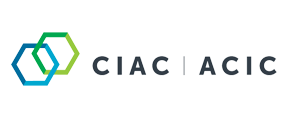Chemistry and Plastics Industries’ Statement on the Government of Canada’s “Draft Science Assessment of Plastic Pollution”
February 05, 2020
The Chemistry Industry Association of Canada (CIAC) and the Canadian Plastics Industry Association (CPIA) have reviewed the report which summarizes the current state of the science regarding the potential impacts of plastic pollution on the environment and human health, and broadly agree with the report’s key findings:
- Plastics, when properly managed throughout their lifecycle, offer enormous environmental, economic and societal benefits;
- A small portion of plastic waste, estimated at 1 per cent, is being discharged to the environment where it can impact organisms and their habitat; and
- While studies show that neither plastics nor plastic waste pose risks to human health, there is a need for research to address knowledge gaps.
“Canadians have a deep, cultural connection to the environment and are rightly concerned by the images of plastic pollution and its impact on the environment and wildlife,” said Carol Hochu, President and CEO, CPIA. “Canadians have also made it quite clear that they expect businesses and governments at all levels to work together to address this issue and address it promptly. We agree and believe that Canada’s chemistry and plastics industries are uniquely positioned to provide innovative solutions.”
CIAC, CPIA and their members have established aggressive goals to ensure all plastic packaging material will be 100 per cent recyclable by the end of the decade, and that all plastic packaging will be recovered and recycled by 2040.
“These industry goals are broadly aligned with the federal government’s commitments as part of the G7 Ocean Plastics Charter (2018) and the Canadian Council of Ministers of the Environment’s Strategy and Action Plan for Zero Plastic Waste,” said Isabelle Des Chênes, Executive Vice President, CIAC. “We look forward to working with governments at all levels to make those goals a reality.”
While the Government of Canada has pledged to ban certain plastic articles, CIAC and CPIA believe that, as is the case with a price on carbon, economic and other instruments are preferable to regulatory prohibitions. The experience in British Columbia with Recycle BC shows that making industry pay for the plastic and other packaging it puts into the economy can be the more effective and efficient approach to managing plastic and other waste. The industry is also encouraged by the Government of Ontario’s plan to transition the Blue Box program to full producer responsibility, similar to B.C., which will promote innovation and increase Ontario’s recycling rates.
CIAC and CPIA believe that bans will have a disproportionate impact on certain businesses; many small and medium-sized Canadian companies’ sole business is producing plastic products that safely and efficiently meet the needs of Canadians. Government will need to take the needs and concerns of these companies and their thousands of workers into account as they would feel the full effects of such decisions.
CIAC and CPIA also urge the government to make the right choice on which regulatory tools it will use to manage plastic waste. The chemistry and plastics industries will continue to support the case that plastic waste is better regulated through other parts of the Canadian Environmental Protection Act, or through new circular economy legislation, rather than through the sections of the Act that are designed to address toxic chemicals.
CIAC and CPIA announced last November they are joining forces to create a new plastics division to be housed within the CIAC. Pending CIAC and CPIA Board and member approval, the division would be operational in July 2020.





